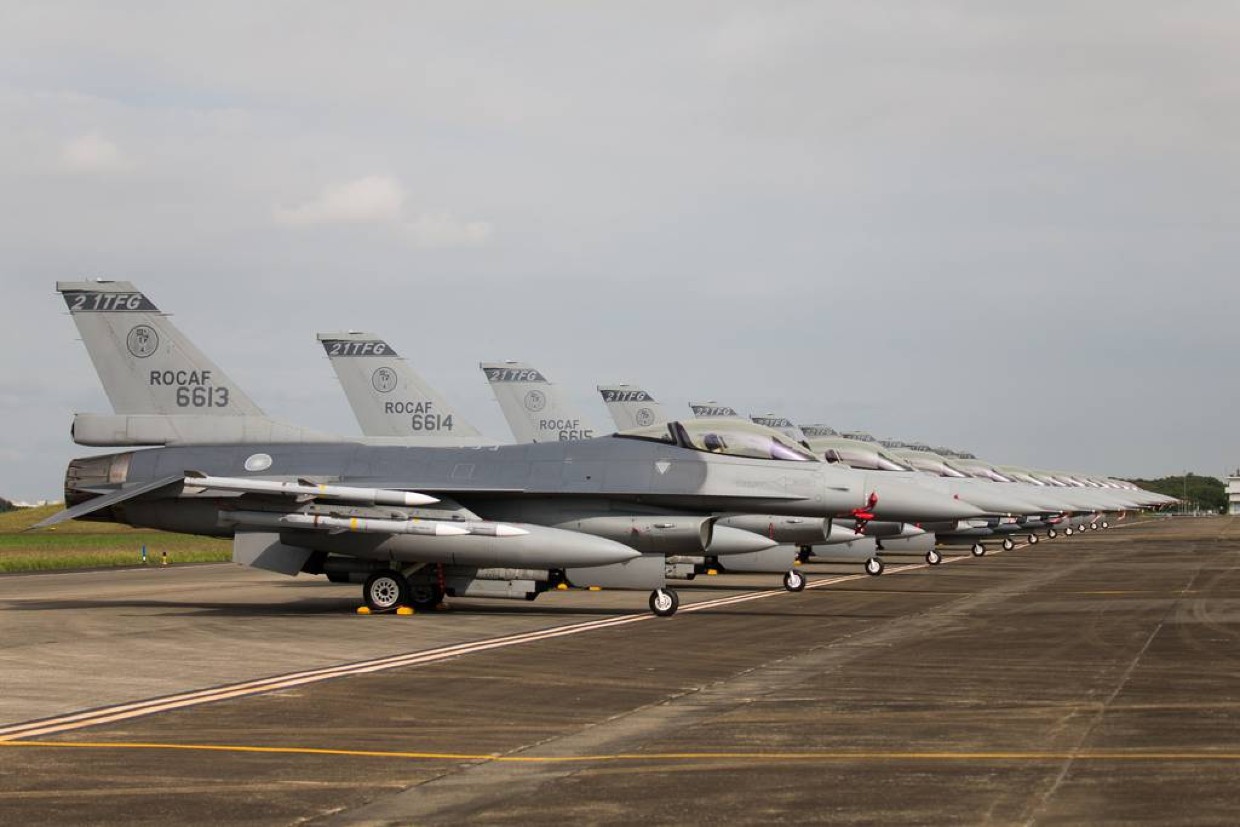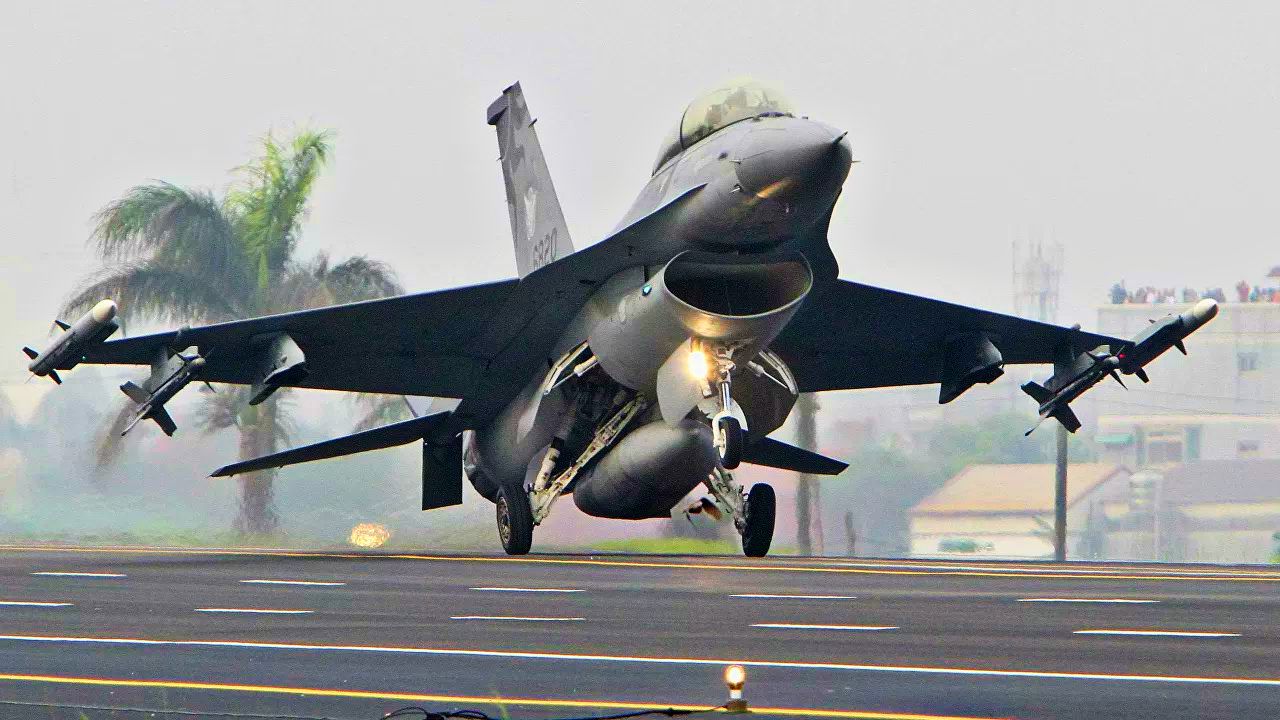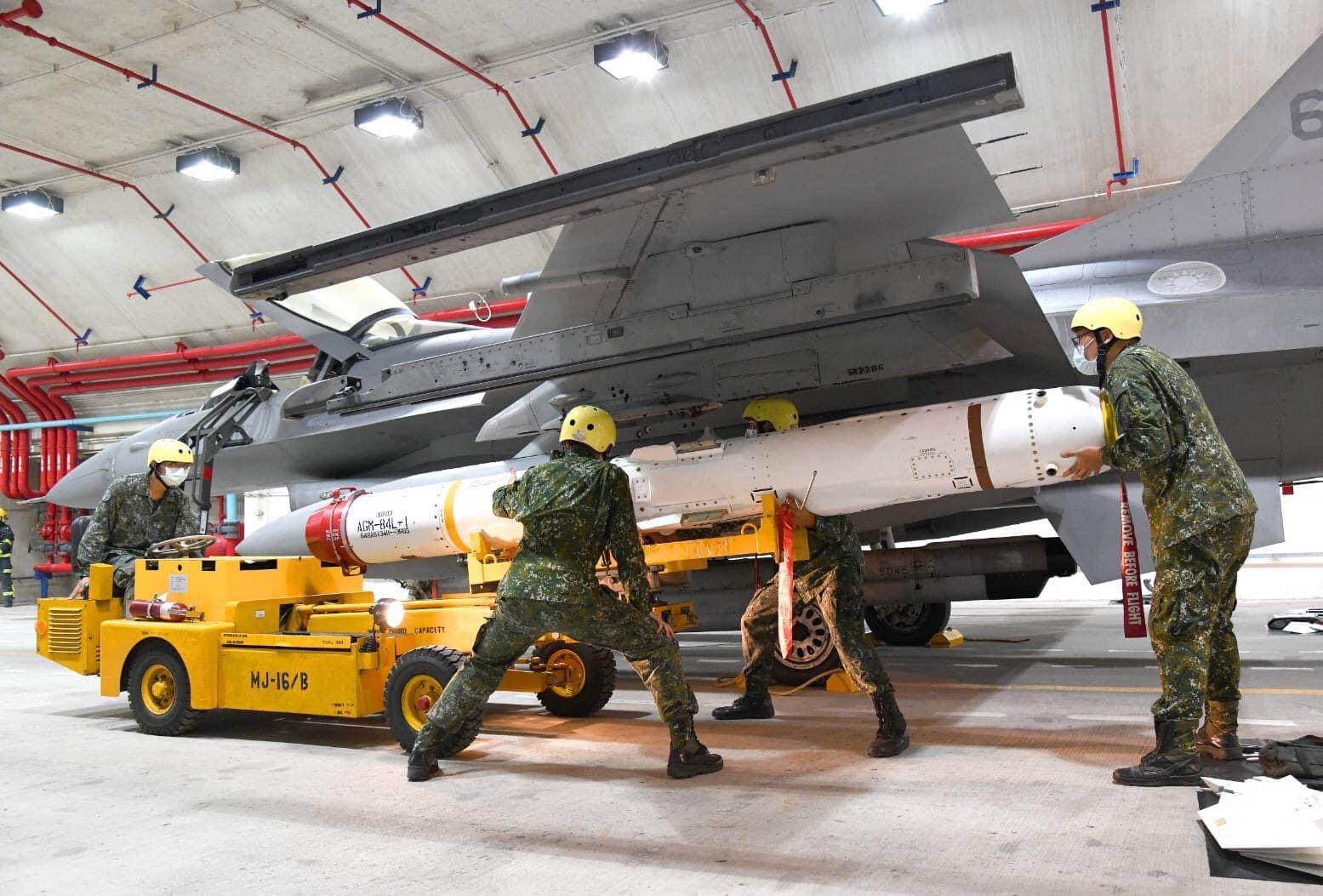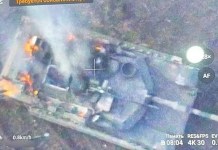The United States recently approved a prospective $619 million arms sale to Taiwan, which includes hundreds of missiles for F-16 fighter jets amid boiling tensions with China.
The Biden administration formally notified the US Congress of the proposed sales of F-16 missiles and associated equipment on March 1, 2023. The announcement comes days after Pentagon’s top China official, Deputy Assistant Secretary of Defense, Michael Chase, visited Taiwan, drawing sharp criticism from China.
On the matter of the potential sale of F-16 missiles, a representative of the State Department said that it is “consistent with the Taiwan Relations Act and our long-standing One-China policy,” according to which “the United States makes available to Taiwan defense articles and services necessary to enable it to maintain a sufficient self-defense capability.”
The official duly informed that Taiwan would pay for this purchase from its coffers. “The United States’ support to Taiwan and steps Taiwan takes to enhance its self-defense capabilities contribute to the maintenance of peace and stability across the Taiwan Strait and within the region,” the official said.
Taiwan is upgrading 141 F-16A/B jets into F-16Vs, awaiting the delivery of 66 F-16Vs with enhanced avionics, missiles, and radar systems. Once the delivery is complete by 2026, the island state will have more than 200 of these fourth-generation fighter jets. This will make it the largest F-16 fleet in the Asia Pacific region.
The Pentagon stated Raytheon Technologies (RTX.N) and Lockheed Martin (LMT.N) would be the principal contractors.
A news release from the US Defense Security Cooperation Agency stated that the munitions that will likely be sold to Taiwan include: 100 AGM-88B High-Speed Anti-Radiation Missiles; 23 HARM training missiles; 200 AIM-120C-8 Advanced Medium Range Air-to-Air Missiles; 4 AIM-120C-8 AMRAAM Guidance Sections; and 26 LAU-129 multi-purpose launchers.
During the Russian aggression in Ukraine, the US supplied AGM-88 HARM missiles to Ukraine. As per various reports, they have been pretty successful in disrupting Russian defenses.

The sale of missiles would potentially add more teeth to Taiwan’s combat capability, cornered by rising Chinese aggression amid calls for a unification of Taiwan with the Chinese mainland, by force if necessary.
In what experts call ‘Gray zone tactics,’ China regularly dispatches its fighter jets and bombers into Taiwan’s ADIZ, sometimes crossing the median line, forcing the Taiwanese Air Force to dispatch its combat aircraft to challenge PLAAF fighters.
Taiwan is, therefore, on a shopping spree for military equipment that would bolster its combat capability against China. However, the sale is expected to anger China as tensions escalated between Beijing and Washington after the latter shot down an alleged Chinese spy balloon in US airspace last month.
The PLA Air Force conducted an air incursion in Taiwan’s Air Defense Identification Zone (ADIZ) soon after the Biden administration announced the arms sale. According to Taiwan’s Defense Ministry, over 17 J-10 and 4 J-16 fighters entered the ADIZ on March 2, the second day in a row.

China Admonishes US For ‘War Hype’
China takes a strong exception to the US military sales and assistance to Taiwan. Last month, after the visit of a top Pentagon official to Taiwan, the Chinese foreign ministry spokesperson Wang Wenbin emphasized that the Chinese government was firmly opposed to official interactions and military ties between the US and Taiwan.
The officials, policymakers, and military experts in the United States regularly issue warnings that a Chinese invasion of Taiwan could occur soon. The US President has repeatedly said that his country would come to Taiwan’s assistance if Beijing launched attacks on the island state.
Recently, the Deputy Secretary of State, Wendy Sherman, told the media, “We have said repeatedly that no one should take unilateral action to change the status quo in the Taiwan Strait. It is in the world’s interest that we maintain peace and stability in the Taiwan Strait as we have done now for decades.”
On March 1, Chinese analysts told the state-run publication Global Times that recent US rhetoric about a military conflict in the Taiwan Straits has increased, with the US implying a commitment to “defend the island,” but such actions are just tricking the island into supporting anti-China strategy and using Taiwan as a pawn.

The state media report further stated that even though proponents of “Taiwan independence” proclaim the “US’ support,” analysts claim that more and more island residents realize that the purported protection is neither trustworthy nor reliable.
However, despite these stern warnings issued by China, Taiwan continues to seek enhanced military ties with the United States. For instance, Taiwanese President Tsai Ing-wen recently announced plans to boost military exchanges after meeting with US lawmakers focused on a range of “security and diplomatic” issues.
On its part, Taiwan views the military purchases from the United States as a pejorative for maintaining deterrence against China. The F-16s are the mainstay of its air force, and advanced missiles for the fighter are expected to bolster its existing air power exponentially.
- Contact the author at sakshi.tiwari9555 (at) gmail.com
- Follow EurAsian Times on Google News





